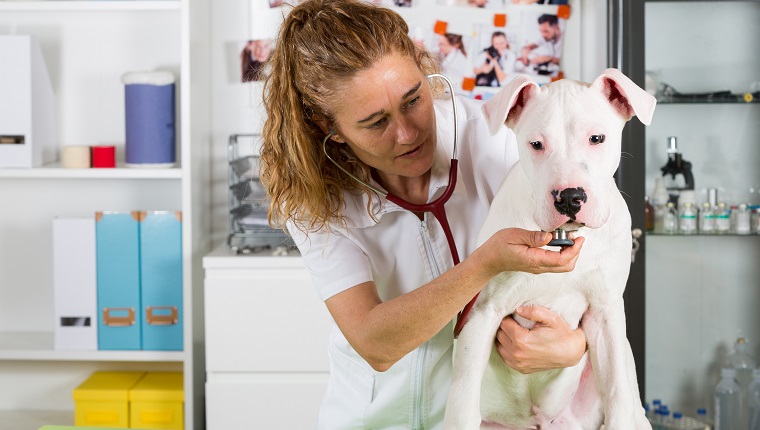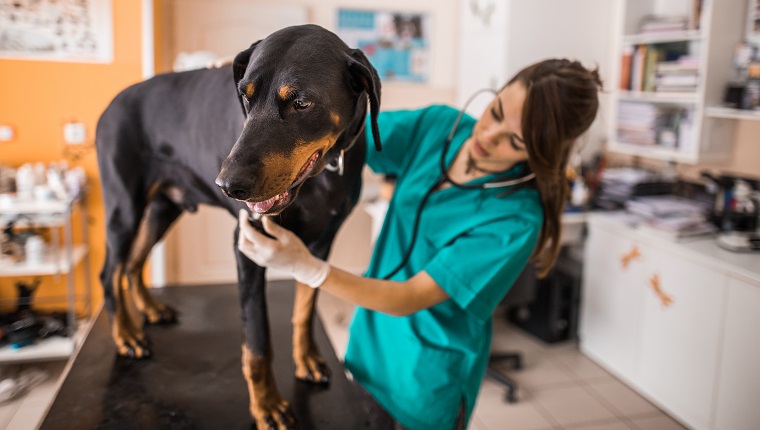Carnitine deficiency in dogs is condition that arises when a dog does not receive a sufficient amount of the nutrient L-carnitine. It can lead to issues including heart disease.
The condition is considered to be quite rare; although, it does affect certain breeds more than others including Great Danes, Boxers, and Irish Wolfhounds. Thankfully, the use of dietary supplements can prove effective for dealing with many cases.
If you see signs that your dog is developing any kind of nutritional deficiency, then you must consult your veterinarian for a proper diagnosis and treatment. Here’s what you should know about the symptoms, causes, and treatments of carnitine deficiency in dogs.
Symptoms Of Carnitine Deficiency In Dogs
Carnitine deficiency in dogs can produce a small range of symptoms. Some of the most common symptoms include:
- Seeming weaker than usual
- Avoiding exercising
- Less appetite than usual
- Acting lethargic
- Pain in the muscles
- Heart muscle issues
Causes Of Carnitine Deficiency In Dogs

The precise cause of carnitine deficiency in dogs has not yet been established. This is because carnitine is produced naturally by the body.
Certain breeds of dog are more likely to develop the condition than other breeds. Some of the breeds most at risk include:
- Cocker Spaniels
- Boxers
- Doberman Pinschers
- Irish Wolfhounds
- Great Danes
Veterinary Treatments
If you see signs that your dog might be developing a carnitine deficiency, your veterinarian will want to ask questions about their medical history and their lifestyle.
In general, the most effective way to diagnose the condition is to carry out a biopsy of the heart muscles.
Once the veterinarian confirms a diagnosis, treatment usually focusses on adding L-carnitine supplements to the dog’s diet.
If your vet recommends L-carnitine supplements for your dog, make sure to follow the precise dosage and frequency instructions. Also, be aware that L-carnitine supplements can cause the side effect of diarrhea for certain dogs.
When a dog begins a course of L-carnitine supplements, it is advisable that they return to their vet for regular EKGs to accurately assess how the condition is improving.
Hs your dog developed a carnitine deficiency? What kind of diet and supplements has your vet recommended? Tell us all about it in the comments below.









